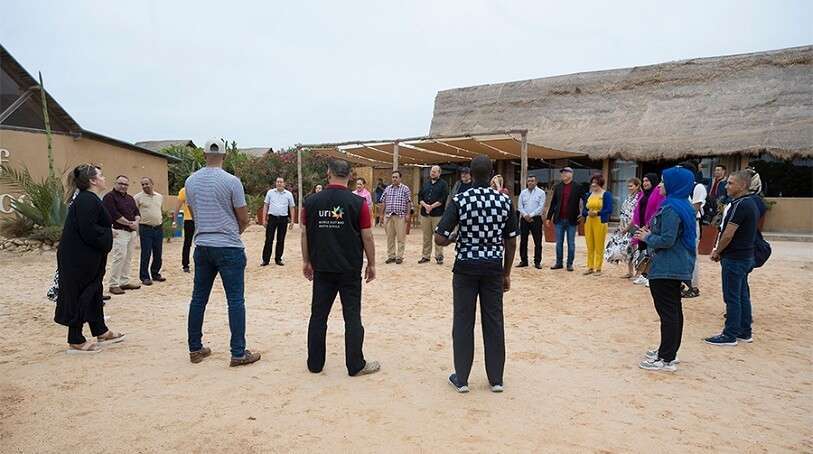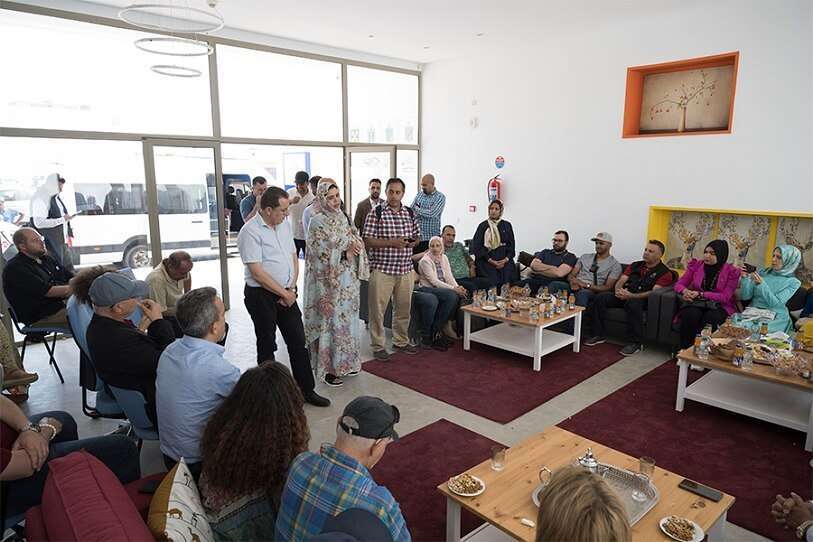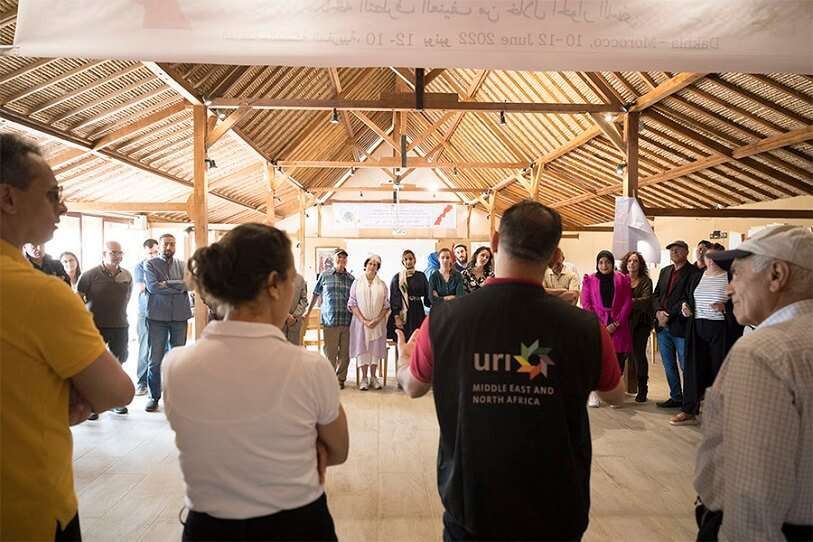La Asamblea de URI en Dajla resalta la relevancia del diálogo interreligioso

The United Religions Initiative-Middle East and North Africa (URI) closes its intercultural coexistence conference with a series of points that have been collected with the aim of clarifying the steps that civil society must take in order to achieve peaceful coexistence between religions and cultures.
Over the course of three days, participants debated various themes on the prevention of violent extremism through interreligious dialogue. The conference addressed identity embracing diversity, the role of youth in preventing violent extremism, and the role of education in building societal resilience and preventing extremism.
During the conference, participants praised the Kingdom of Morocco as a role model in consolidating the culture of coexistence among followers of all religions. In this context, the event was an occasion to renew the call for the fight against violent extremism in the Holy Land and for peaceful coexistence between Jews, Christians and Muslims there.

The conference organisers also thanked "the people and the government of the Kingdom of Morocco for their warm welcome and hospitality and their generous support for this important international event, especially the Moroccan authorities, who facilitated the holding of the conference in this beautiful desert city of multiple geographical dimensions, and the visit to the most important cultural and civilisational landmarks there".
At the end, participants renewed their affirmation of the humanitarian principles that unite them, and their commitment to the principles and charter of the United Religions Initiative, which was signed by thousands of people from around the world. These included "full respect for the religiosity of individuals and for the difference of their spiritual beliefs and practices, respect for the privacy of religions and the differences between them and ensuring the spiritual expressions of their holders, as well as welcoming the diversity of spiritual and traditional cultures and practices and non-discrimination on the basis of these".

All these conclusions were reflected in the "Declaration of Dakhla" where they committed to "renounce to violence, hatred and all forms of discrimination between religions and spiritual beliefs in the world, unite the efforts of all peace activists in the world to contribute to the prevention of religious intolerance and violent extremism and stress the importance of the role of youth in preventing all forms of violent extremism, highlighting the importance of education in building the resilience of society and preventing extremism and terrorism".
Furthermore, they reaffirmed the importance of "focusing on addressing the environmental and social factors that contribute to the spread of violent extremism in the world, encouraging and supporting interreligious dialogue, promoting ongoing and daily interreligious cooperation, ending religiously motivated violence and creating cultures of peace, justice and healing for the earth and all living beings and the coming together of all partners of the United Religions Initiative to build safe places for conflict resolution, healing, reconciliation and coexistence among people".

They also called on the Kingdom's leaders, in view of the interest of the leaders of the United Religions Initiative of the Kingdom of Morocco in interfaith dialogue and the spread of a culture of tolerance and coexistence, to allow "the opening of a representative office in the Kingdom of Morocco to coordinate the work of the United Religions Initiative in the Kingdom of Morocco and in North Africa".

Beyond these conclusions, the URI has organised a visit to the Lalla Amina Centre for the care of children in Dakhla. The organisation, which is supported by the Moroccan Ministry of Health and the Ministry of Education, is responsible for caring for orphaned children. Whether it is because these children have lost their parents or because the extreme vulnerability of their families has led them to these centres, Lalla Amina aims to be a refuge for the children, most of whom are babies and toddlers.
Here they have the opportunity to have a place where, in addition to living, they can learn and attend classes. The centre in Dakhla is one of 14 in Morocco. Specifically, the one in Dakhla is home to a total of 22 children, although it has the capacity to accommodate 70.








